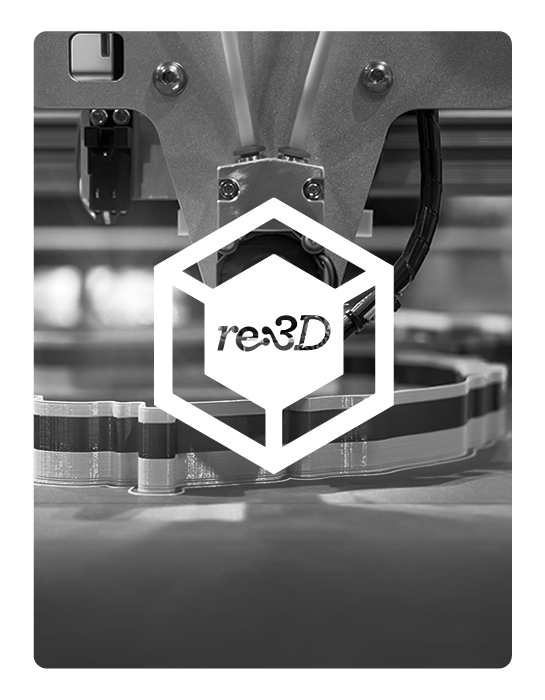re:3D has not only witnessed firsthand but developed a passion for the opportunity that onsite manufacturing provides in disaster response/resiliency as well in new job creation, education, and in supply chain reduction.
In 2017, Houston-based re:3D endured not only Hurricane Harvey at one of its U.S. locations, but Hurricanes Irma and Maria only a month later at its newly-established operations in Puerto Rico. As a result of the impact of these natural disasters, re:3D has not only witnessed firsthand, but developed a passion for the opportunity that onsite manufacturing provides in disaster response/resiliency, as well in new job creation, education, and in supply chain reduction.
Four limiting factors constrain the market potential of industrial 3D printing: cost, printer size, printing speed, and access to input material. re:3D is actively addressing these limitations through pellet and flake extrusion, and is committed to decimating the cost and scale barriers to industrial 3D printing. After pioneering the world’s first affordable, human-scale industrial 3D printer, re:3D is enabling 3D printing directly from recycled plastic pellets or flake. The Gigabot platform is very affordable compared to other industrial 3D printers on the market. It’s distinguished by a modular frame and the company’s commitment that all improvements will be offered as retrofit kits. This platform can be modified for 3D printing with filament or pellets, enabling it to print anywhere on demand.
With over $6 Million in sales, re:3D is capitalizing on the growing industrial 3D printing segment.
Small Business Innovation Research (SBIR) funding provided the necessary resources for this socially driven, open-source, bootstrapped hardware company to complete the significant research required to modify its existing large-scale 3D printers. The modification allowed the 3D printers to accept shredded plastic water bottles and other recyclables as a feedstock. SBIR funding also enabled re:3D to investigate applications of the hardware to create functional goods from trash – which led to their exploration of opportunities to design and print functional objects from discarded water bottles – creating new jobs by those displaced by recent earthquakes.
With over $8 million in sales, re:3D is capitalizing on the growing industrial 3D printing segment. The target market to directly 3D-print from recyclables includes medium and large manufacturers seeking to print with non-extruded materials, as well as those located in geographies whose supply chains constrain access to imported feedstock. re:3D’s revenue is generated from direct hardware sales, training, design, and contract print services, with a current customer base that includes users from more than 50 countries.
re:3D maintains a 7,000-square-foot manufacturing facility not only equipped with all of the tools, jigs, and fixtures needed to design, test, iterate, and build – but, is comprised of a unique blend of technicians, strategists, and engineers – all of whom have the background and know-how necessary to execute the company’s vision, and to easily customize its Gigabots to support problem-solvers worldwide.


